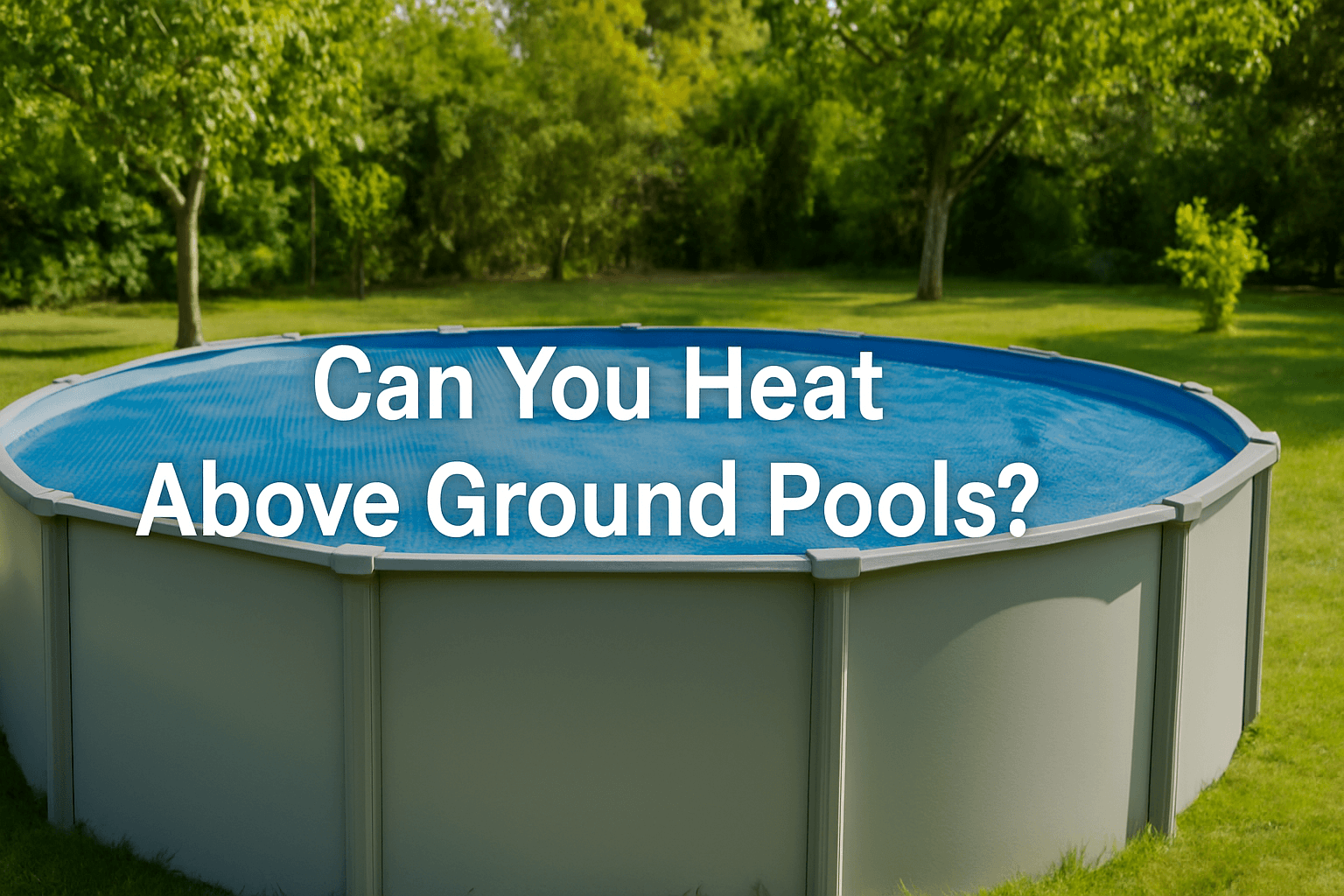
Can You Heat Above Ground Pools?
Can you heat above ground pools? Absolutely — and no, you don’t need to build a bonfire next to it.
With the right pool heater, you can keep the fun going well past summer. Whether you're dealing with British drizzle or a random chilly snap, a warm pool is a game-changer.
In this guide, we'll break down the best heating methods, what affects their efficiency, and how to choose the right setup for your family.
Why Heating an Above Ground Pool is Possible and Popular
Extending the Swimming Season Comfortably
In the UK, summer often lasts about… two weeks? Maybe three if we’re lucky.
But with a heated pool, you're not at the mercy of the weather gods.
You can turn a three-week splash window into a season-long water wonderland.
Kids, especially, love it — no more blue lips after five minutes in the water.
Making Swimming More Enjoyable in Cooler Climates
Let’s face it — most of us don’t live in the tropics.
But that doesn’t mean your pool should sit unused nine months of the year.
A pool heater means you can swim on a crisp spring day or during an autumn afternoon.
And it’s not just for fun — warm water is easier on joints and great for relaxed exercise too.
Overcoming Natural Temperature Fluctuations
One sunny day doesn’t mean your pool will stay warm all week.
Night-time dips in temperature can undo all that lovely heat.
With a heater, you're not relying on the weather playing nice.
You’re in control — which is especially handy during the UK’s famously unpredictable seasons.

Factors Affecting Heating Efficiency
Pool Size and Water Volume
Think of it like heating a kettle versus a bathtub.
A bigger pool needs more power, more time, and more energy to heat up.
Small family pools? A basic setup might do the trick.
But if you’ve got a large above ground pool, it’s worth investing in something more robust.
Climate and Ambient Air Temperature
If you’re based in Cornwall, you’ll need less heating help than someone in the Highlands.
Local climate matters.
Milder air temps mean your heater works less to reach the target temperature.
If you're in a chilly spot, don’t skimp on heating power.
Sunlight Exposure and Shade
Got a sunny spot in your garden? You’ve already got an advantage.
Pools in full sun need less heating support during the day.
But if yours is tucked under trees or in the shade, be ready to compensate.
That might mean a stronger heater — or clever use of a pool cover.
Use of a Solar Cover for Heat Retention
Don’t underestimate a good solar cover.
It’s like a duvet for your pool.
Pop it on when you're not swimming, and it traps heat while reducing evaporation.
That means less work for your heater — and less money on your energy bill.

Effective Methods for Heating Your Above Ground Pool
Solar Heating Systems
Dedicated Solar Panels (Active Systems)
These setups use roof- or ground-mounted panels to warm your pool water with sunlight.
They’re ideal if your garden gets decent sun exposure.
It’s a longer-term investment, but running costs are practically zero once installed.
Inexpensive Solar Blankets/Covers (Passive Systems)
This is the budget-friendly option — and surprisingly effective.
A solar blanket floats on top of the pool, soaking up the sun and locking in heat.
Think of it as sunbathing for your pool.
Advantages (Low Operating Cost, Eco-Friendly)
Solar heating is a win-win: low running costs and good for the planet.
If you’re trying to cut your energy use and keep costs down, it’s worth a look.
Just bear in mind it works best in sunnier months and regions.
Electric Pool Heaters
Standalone Electric Heating Units
Electric heaters are plug-and-play solutions that directly heat your pool water.
They're simple, fast, and great for smaller pools or short bursts of use.
Installation is often straightforward, especially with above ground models.
Quick Heating for Smaller Pools
If you're after something that works fast, electric is a good bet.
It’s particularly handy if the kids want a warm pool for the weekend or you’re throwing a last-minute garden party.
Higher Operating Costs Compared to Other Options
The catch? Electricity isn’t cheap.
Running an electric heater regularly will show up on your bill.
But for occasional or targeted use, it's manageable — just budget for it.

Pool Heat Pumps
Energy-Efficient Heat Transfer Technology
Heat pumps don’t create heat — they move it from the air into the water.
It’s clever tech and surprisingly efficient.
Kind of like a reverse fridge, but for your pool.
Ideal for Extending Seasons in Moderate Climates
If you’re in a place that’s not freezing, a heat pump can stretch your swim season by months.
They’re especially good for keeping temperatures steady during spring and autumn.
Higher Upfront Investment
You’ll pay more up front — no sugar-coating that.
But over time, the energy savings can make it a smart investment.
Think long-term gains over short-term cost.
Other Heating Options (Less Common or Supplementary)
Propane/Natural Gas Heaters (High Operating Cost)
Gas heaters are the powerhouses of pool heating.
They warm water fast, making them ideal for short-notice swim sessions.
But they're costly to run — especially with today’s gas prices.
Best used occasionally, not around the clock.
Heater/Filter Combos (Integrated Systems)
Some all-in-one systems combine heating with filtration.
They’re tidy, space-saving, and good for smaller pools.
But they may not match the efficiency or performance of a dedicated heater.
Great for light use — not ideal for daily family swimathons.
Have you checked out our other posts?
Are Above Ground Pools Heated?


Leave a comment